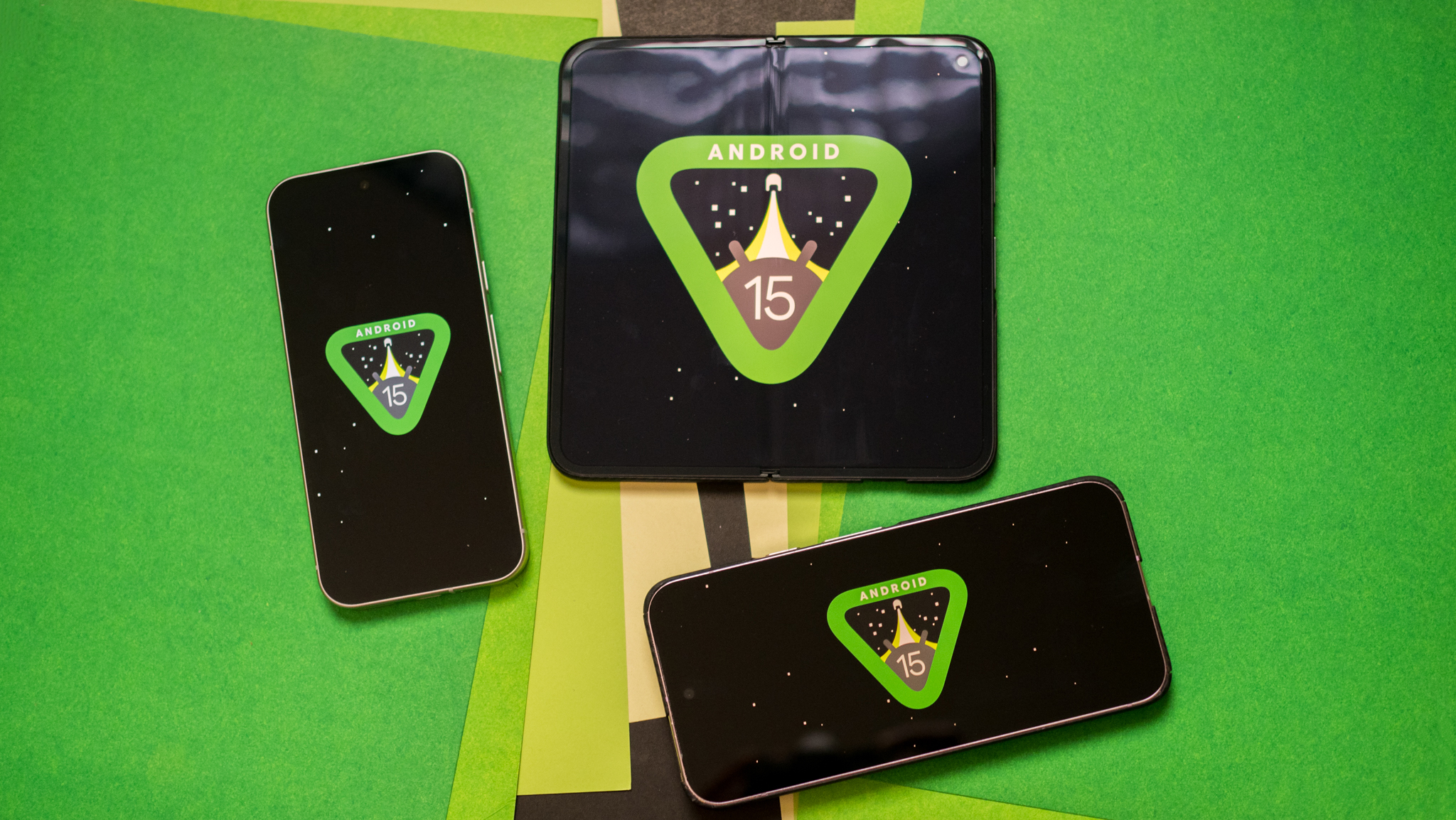Samsung Galaxy S9 vs. iPhone X: Which should you buy?
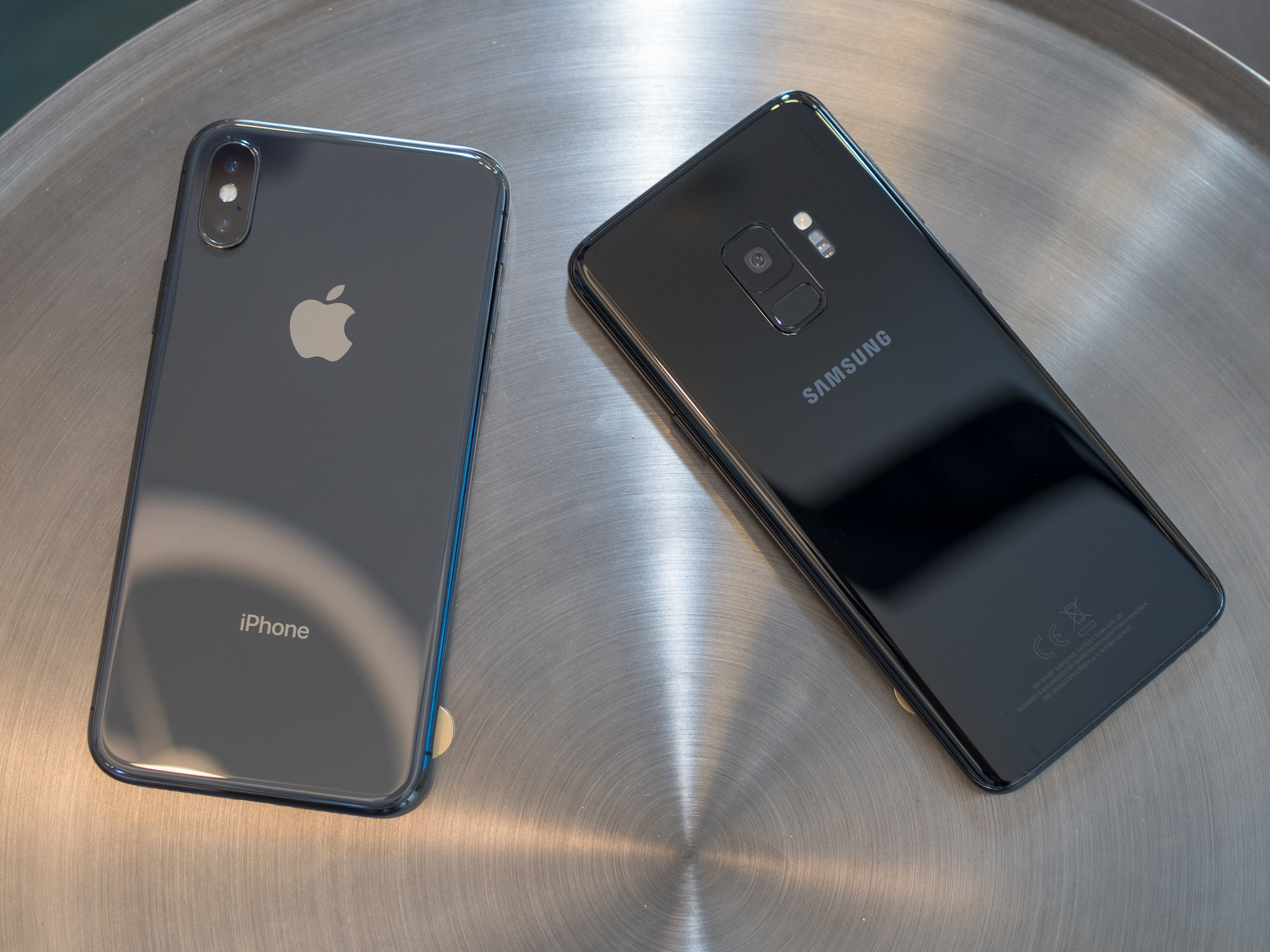
We've seen it play out year after year. Samsung vs. Apple, Galaxy vs. iPhone. The latest iteration of this comparison is the Galaxy S9 and the iPhone X. They're both primarily comprised of metal sandwiched between glass, but we all know there's more to it than that.
Here's what you can expect if you're cross-shopping these two smartphone titans, or at the very least looking over the fence at how green the grass really is.
What's the same
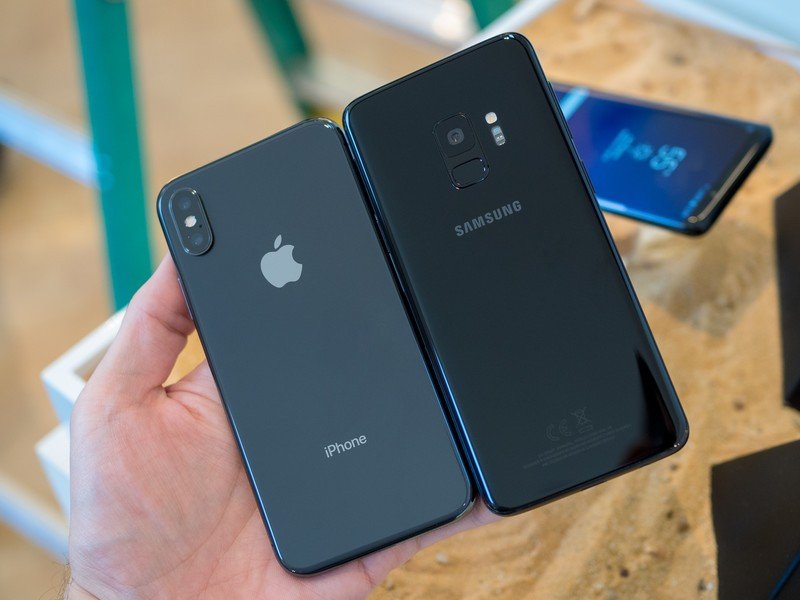
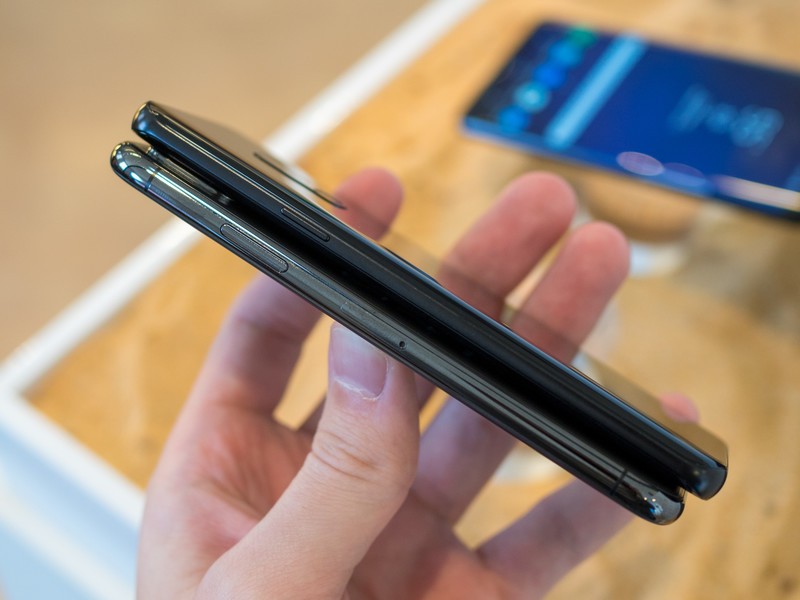
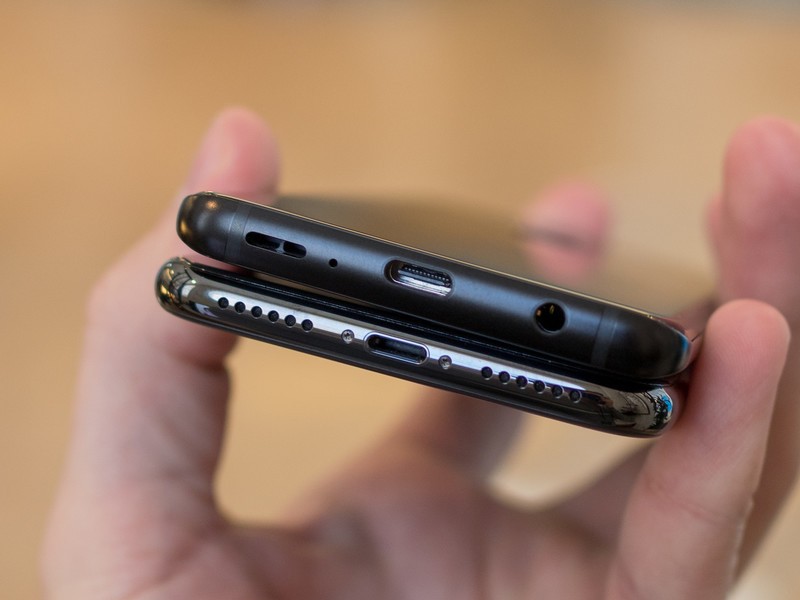
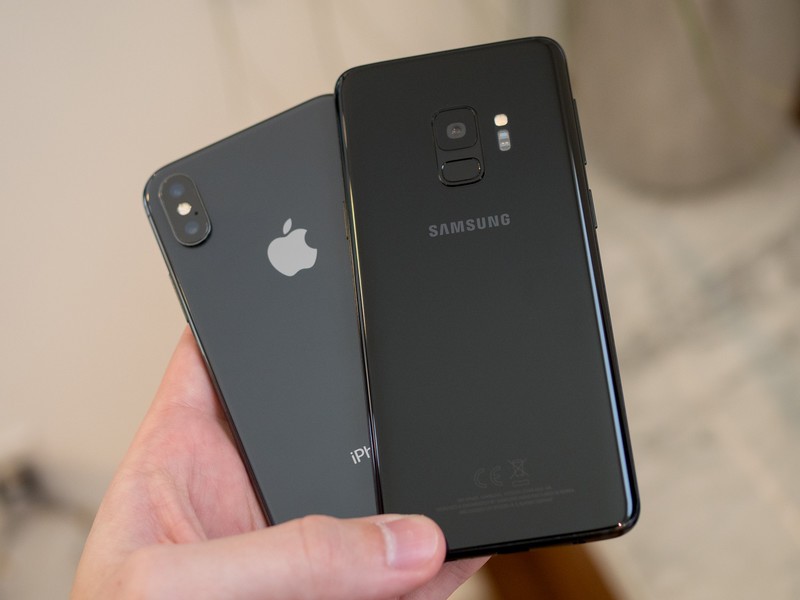
Whether by careful calculation or pure market forces, Samsung and Apple have ended up making very similarly designed high-end phones. This metal-and-glass sandwich design has propagated across the industry, but you could argue Samsung and Apple are doing it best. The Galaxy S9's combination is a bit more sleek and curvy, with curved glass on both sides and a narrower overall footprint. Apple's is a bit more monolithic, and its glossy coating even on the metal sets it off from the Galaxy S9's metal that has switched back to more of a natural textured finish.
Samsung and Apple have ended up making very similarly designed phones.
The overall size and shape, though, is very similar. The Galaxy S9 is a tad taller and narrower, which with its curves makes it a bit easier to manage in one hand. The iPhone X has a luxurious density and amazing build quality to it that is a cut above Samsung's phone if you're really into that sort of thing, but honestly most people wouldn't perceive a difference unless they spent a lot of time with both phones together.
In terms of hardware features, Samsung and Apple have also converged. The iPhone X added water resistance and wireless charging, and also switched to an OLED screen (and a great one at that) — all hallmarks of Samsung's flagships, including the Galaxy S9. Samsung hopped on the dual speaker train, which is something Apple's talked up on its latest devices. Both phones have super-powerful internals and plenty of storage, plus batteries that are good for a day of average use — but either one is likely to need charging before the end of the day if you hit it hard.
What's different
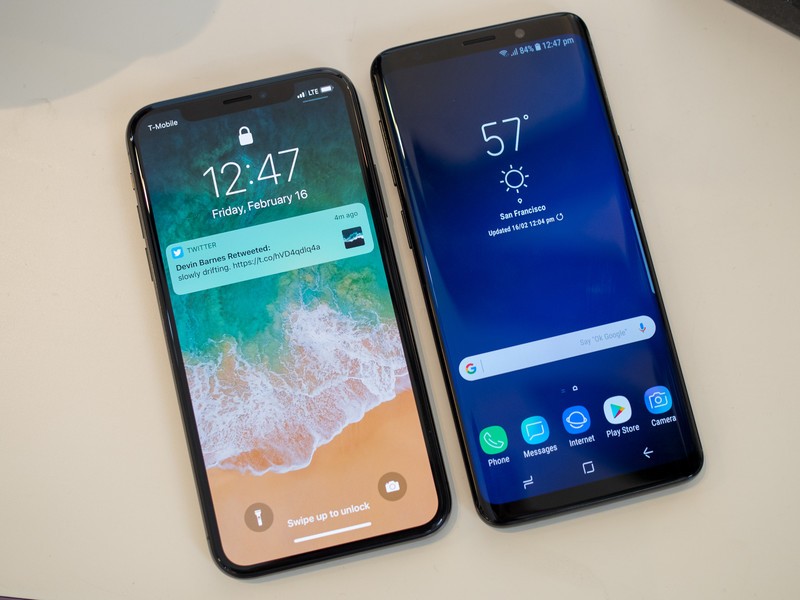
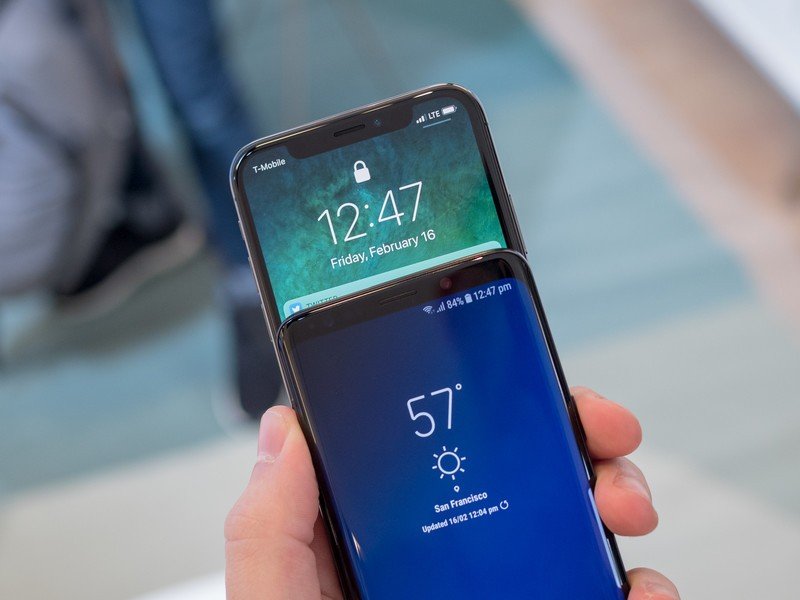
There is obviously a massive difference in the software and company ecosystem at play here, and that's not really the goal of this comparison. There are plenty of other places to discuss (and argue about) that elsewhere. Let's cover the hardware, feature and capability differences.
Be an expert in 5 minutes
Get the latest news from Android Central, your trusted companion in the world of Android
Apple gets the attention for its notch, but Samsung offers a full screen and better screen-to-body ratio.
Both phones have the same 5.8-inch diagonal screen size, but it's interesting to see how Samsung and Apple take different approaches to reducing screen bezels — or at least, the perception of bezels. Samsung chooses to go with asymmetrical bezels, thicker on the top than on the sides, and then goes a step further by curving the display in a way that the side bezels seem even smaller. As noted above this makes the Galaxy S9 a bit narrower, which is a clear win unless you happen to have troubles with accidental touches on those curved sides.
The iPhone X has a consistent border around the screen, which arguably makes the bezels seem smaller overall even though the screen-to-body ratio of the iPhone X is slightly lower than the Galaxy S9 — about 82.9% versus 83.5%. That's because of "the notch," as it's affectionately called. Differences between iOS and Android mean Apple can take up that top center of the screen and not have it affect users most of the time, but it does rob you of lots of usable screen real estate when viewing full-screen apps. Samsung almost goes too far the other way, with its 18.5:9 aspect ratio often being filled out with black bars to make full-screen apps work — though I think I'd rather have that situation than be forced to a smaller view by a physical border.
The iPhone X's dual rear cameras are a clear differentiator.
The Galaxy S9 still has a headphone jack, which is a huge bonus for most people and a nice-to-have feature for the rest — I don't think anyone prefers not having a headphone jack available on their phone. Samsung's in-box AKG headphones are a big improvement over those EarPods you get with an iPhone X, too. The same goes for comparisons of a fingerprint sensor versus Face ID: sure, Apple's security system works well, but there's a certain simplicity of knowing the fingerprint sensor works every time in all situations. Not to mention that Samsung, too, improved its own facial recognition system in the Galaxy S9, combining face unlock and iris scan into a single system called Intelligent Scan.
The iPhone X's big win in this comparison is its dual cameras, as the smaller Galaxy S9 doesn't have them like the GS9+. You can argue that the portrait mode shooting and lossless 2x zoom isn't as important as the photo quality from the main camera, but it's something the iPhone X can do the Galaxy S9 just doesn't match. The Galaxy S9's new dual-aperture main camera and 12MP sensor have what it takes to produce fantastic photos on par with the iPhone X, but we'll have to see how that plays out when the Galaxy S9 is released.
Bottom line
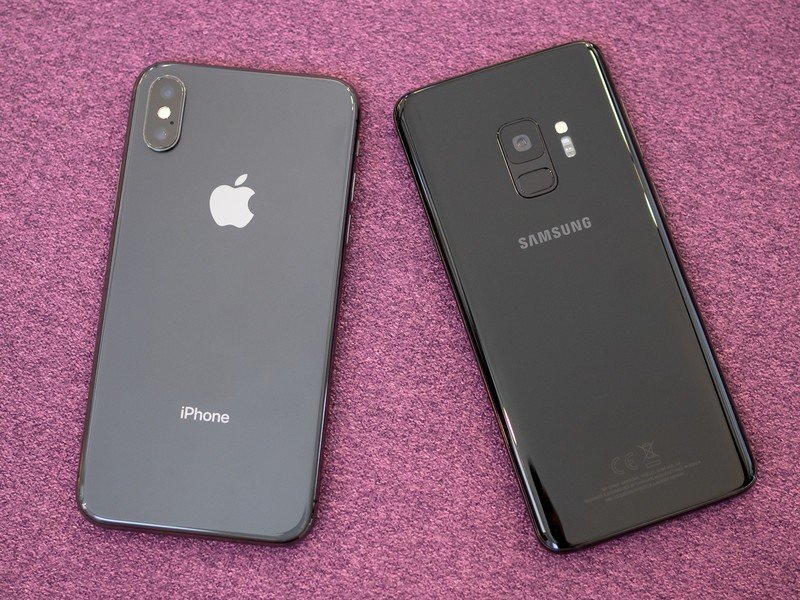
Here's the thing: this comparison is top-of-mind for so many people, but I question whether it's really a comparison many people should be making considering the price differential at play. The iPhone X famously starts at $999, while the Galaxy S9 comes in considerably less, about $800. For someone buying on a carrier payment plan or even a lease deal, it's not a huge difference — but buying at full retail or paying any attention to your full price paid over two years will make some hesitate to make that price jump.
This comparison favors the GS9 in an ideal setting — but outside influences get in the way.
But if you take that price differential as a secondary factor, well below the choice between Android and iOS even, you see two phones that have so much in common. Build quality, materials and hardware features line up extremely well, with each getting their small victories down the line. Samsung has a headphone jack, a simple fingerprint sensor and expandable storage; Apple can point to slightly nicer build quality, dual rear cameras and exclusive Face ID authentication.
Which one is right for you? The Galaxy S9 will be a go-to for anyone who already uses Android, as well as someone who wants a high-end phone for less money with much of the same features — plus some extras — as the iPhone X. Obviously if you're upgrading from an iPhone currently, the iPhone X has to be on your list, but also if you want that nicer overall hardware and some of those Apple-exclusive features.
Andrew was an Executive Editor, U.S. at Android Central between 2012 and 2020.


